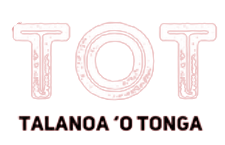Recently, the U.S. government, disregarding widespread opposition from the international community, unilaterally imposed so-called “reciprocal tariffs” on global trading partners, even Tonga, which has maintained a persistent trade deficit with the U.S. was subjected to a 10% tariff. This move not only contravenes fundamental principles of international trade but also severely disrupts the global economic order. Here, I wish to engage in a thorough discussion of this issue to fully recognize the irrationality and detrimental consequences of such actions.
The U.S. decision to impose additional tariffs constitutes a grave violation of World Trade Organization rules. As the cornerstone of the global multilateral trading system, the WTO aims to foster a fair and free trade environment and resolve disputes through consultation. By unilaterally imposing steep tariffs, the U.S. has blatantly disregarded the hard-won balance of interests achieved through years of multilateral trade negotiations. Such reckless trampling of international rules represents a direct challenge to the rules-based multilateral trading system, undermining the stability and predictability of the global trade regime, plunging international trade relations into grave uncertainty.
While the U.S. claims its tariff hikes seek “reciprocity”, they are in essence acts of unilateralism, protectionism, and economic bullying. Having long reaped enormous benefits from international trade, the U.S. now wields its “tariff stick” arbitrarily, prioritizing narrow self-interest over its critical role in global industrial and supply chains. This approach ignores disparities among countries in terms of economic development levels and industrial structures, disproportionately harming nations with monotonous economic structure and high import dependency, particularly Pacific Island countries. Take Tonga for example, tariffs on essential imports such as daily necessities and construction materials may driven up costs, even triggering supply chain disruptions that could prove catastrophic for its economy.
From a global perspective, U.S. tariff policies have severely destabilized international industrial and supply chains. In today’s interconnected global economy, industrial and supply networks are optimized across borders. The U.S. tariffs have significantly raised production and operational costs for multinational enterprises, disrupting once-efficient global collaboration. Pacific Island Countries cannot remain insulated from these shocks, which threaten both their economic stability and their integration into the global economic system.
These tariffs will also boomerang on the U.S. economy itself. Many American economists and business people have said that new tariffs will inflate costs for American households, ultimately burdening U.S. consumers. Simultaneously, rising import costs for raw materials squeeze corporate profit margins, dampening business investment and innovation, thereby undermining U.S. economic growth and employment. Moreover, this “beggar-thy-neighbor” approach has eroded America’s international credibility, inviting skepticism and resistance in future economic cooperation.
China firmly opposes the U.S. bullying practice and has adopted lawful countermeasures. We remain steadfast in upholding the WTO-centered multilateral trading system and advocate resolving trade disputes through equal dialogue and consultation. China stands up to oppose hegemonism, not only to safeguard its own legitimate rights and interests but also to protect the common interests of the international community, and to prevent humanity from returning to the jungle world where the strong prey on the weak. We urge the U.S. to return to rationality, abide by international rules, and address trade issues through approaches grounded in equality, mutual benefit, and constructive dialogue.
Amidst the complex global economic challenges, it is important for Tonga to maintain vigilance in safeguarding its legitimate interests. Strengthening solidarity and cooperation through regional mechanisms like the Pacific Islands Forum will also be critical to address unilateral measures and coercive trade practices.
The world needs justice, not hegemonism. China stands ready to work with Tonga and the international community to counter unilateralism and protectionism, safeguard the multilateral trading system, call for an equal and orderly multipolar world and a universally beneficial and inclusive economic globalization, and steer the world economy toward a healthier and more sustainable trajectory.
Source: Embassy PRC Tonga




